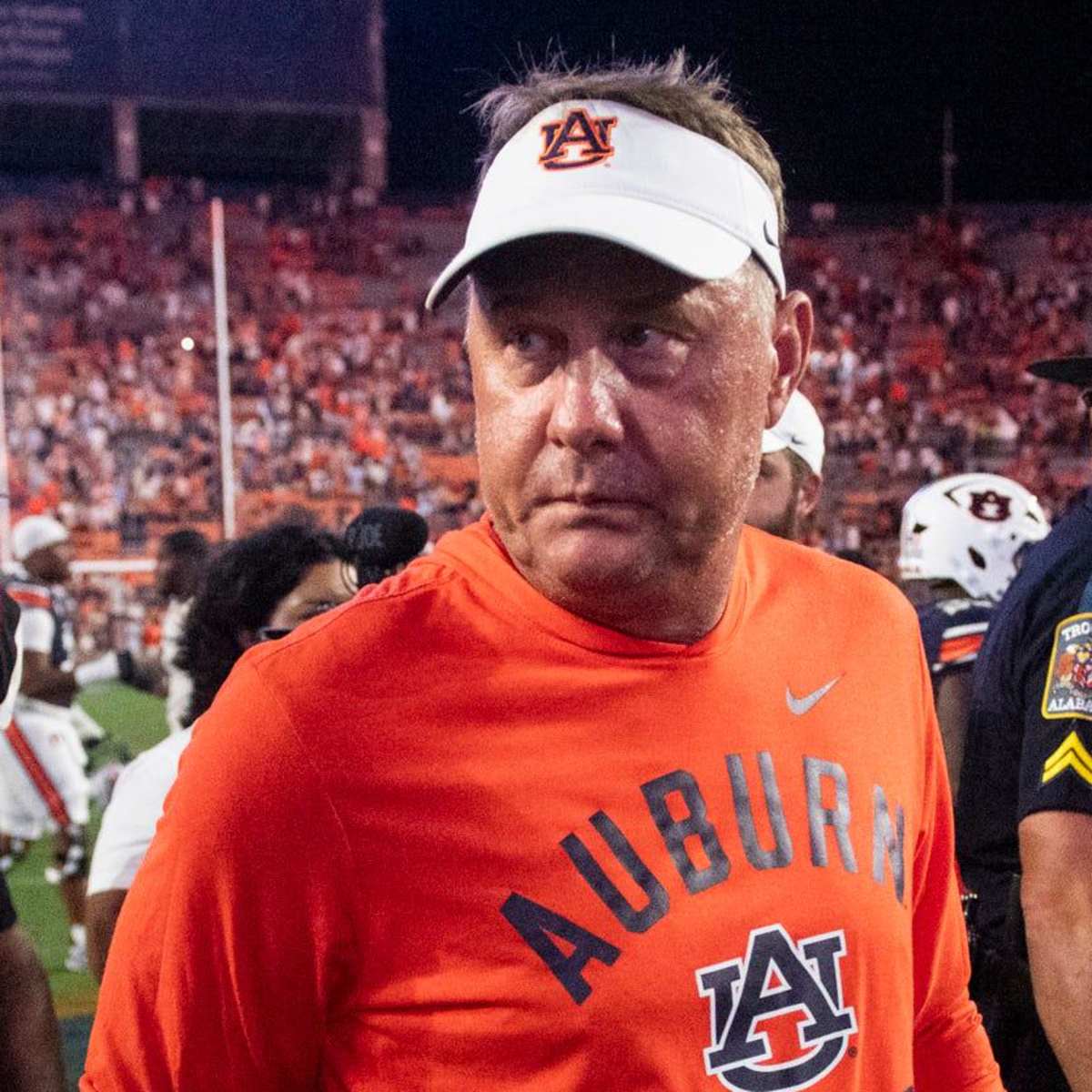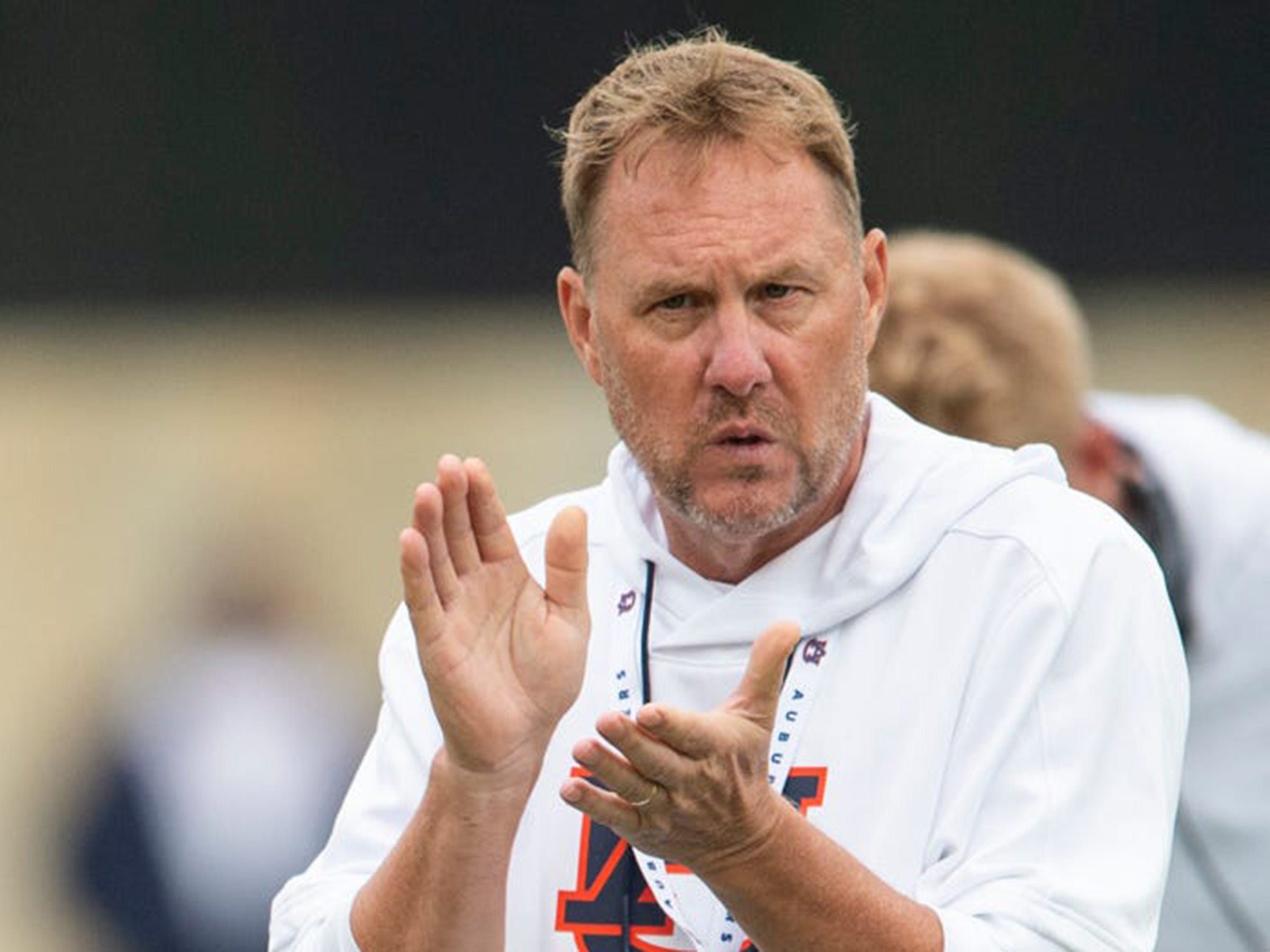 Rumors are swirling around the Auburn football program, as multiple sources suggest that the future of head coach Hugh Freeze could soon be under serious review. The Tigers have dropped three straight games, all against Top-10 opponents, and while the schedule has been unforgiving, the losses have raised legitimate concerns about the team’s direction. Auburn has been competitive in every one of those contests, only to falter late in each pattern that has frustrated fans and administrators alike.
Rumors are swirling around the Auburn football program, as multiple sources suggest that the future of head coach Hugh Freeze could soon be under serious review. The Tigers have dropped three straight games, all against Top-10 opponents, and while the schedule has been unforgiving, the losses have raised legitimate concerns about the team’s direction. Auburn has been competitive in every one of those contests, only to falter late in each pattern that has frustrated fans and administrators alike.
Columnist Joe Goodman summarized the situation by noting that the defeats themselves aren’t necessarily grounds for a dismissal, but the way they’ve unfolded has exposed “uncomfortable truths” about the state of the program. Freeze’s Auburn squad has shown flashes of promise but continues to struggle in the moments that matter most, whether it’s finishing drives, executing in crunch time, or maintaining discipline under pressure. That inability to close out winnable games is beginning to erode confidence in Freeze’s long-term vision for the Tigers.
 The frustration stems from more than just the win-loss record. In the hypercompetitive landscape of the Southeastern Conference, being close simply isn’t good enough. Auburn fans are accustomed to seeing their program compete for championships, not moral victories. The recent skid particularly the late-game collapses has magnified concerns that the team lacks the killer instinct that once defined Auburn football. As Goodman put it, the Tigers aren’t getting blown out; they’re “finding ways to blow games,” and that’s an issue that falls squarely on coaching and leadership.
The frustration stems from more than just the win-loss record. In the hypercompetitive landscape of the Southeastern Conference, being close simply isn’t good enough. Auburn fans are accustomed to seeing their program compete for championships, not moral victories. The recent skid particularly the late-game collapses has magnified concerns that the team lacks the killer instinct that once defined Auburn football. As Goodman put it, the Tigers aren’t getting blown out; they’re “finding ways to blow games,” and that’s an issue that falls squarely on coaching and leadership.
Freeze was brought in to bring stability and energy back to the Plains after years of inconsistency. Early signs in his tenure suggested that Auburn was on the right track, with improved recruiting and a renewed sense of optimism. However, the current slump has cast a shadow over that progress. Some within the program are beginning to question whether Freeze’s methods from play-calling to player development are producing the results needed to keep pace with the SEC’s elite.
Goodman’s column reflects the sentiment of many around Auburn’s fan base: that Freeze’s seat, while not officially “hot,” is definitely warming. The expectation at Auburn is not just to compete but to win big games, especially against ranked opponents. The fact that the Tigers have repeatedly put themselves in position to do so, only to fall short, makes the situation even more frustrating. The perception is that Freeze’s teams are talented enough to compete but lack the composure or confidence to finish.
Behind the scenes, the pressure is mounting. Auburn’s boosters and athletic department officials are reportedly evaluating the trajectory of the program as they prepare for the second half of the season. While firing Freeze midseason is unlikely, the conversation about his long-term fit has begun to surface more openly. A poor finish to the season especially if the Tigers fail to reach bowl eligibility could make his position untenable heading into 2026.
 There’s also a growing concern about recruiting momentum. Auburn’s recent struggles have already begun to affect how high school prospects view the program. Freeze had built early relationships with several top targets in the 2025 and 2026 classes, but sustained losing could cause some of those recruits to look elsewhere. In the SEC, perception matters and right now, the perception is that Auburn is sliding backward instead of building toward contention.
There’s also a growing concern about recruiting momentum. Auburn’s recent struggles have already begun to affect how high school prospects view the program. Freeze had built early relationships with several top targets in the 2025 and 2026 classes, but sustained losing could cause some of those recruits to look elsewhere. In the SEC, perception matters and right now, the perception is that Auburn is sliding backward instead of building toward contention.
Still, Goodman acknowledged that Freeze’s situation is not as simple as wins and losses. The Tigers have shown improvement in several areas, including defense and overall competitiveness. But at a place like Auburn, moral victories only go so far. The program’s fan base expects excellence, and patience tends to wear thin quickly when those expectations aren’t met. Goodman’s warning was less a call for immediate change and more a reminder that the leash in the SEC is short especially for a coach making over $6 million a year.
Ultimately, the question facing Auburn’s leadership is whether Freeze is the right man to guide the team forward. His offensive background was supposed to revitalize the Tigers, yet the unit has been inconsistent and often predictable against elite competition. The close losses have underscored a lack of creativity and adaptability, two qualities that once defined Freeze’s coaching identity.
 For now, the administration appears committed to giving Freeze the remainder of the season to turn things around. A few signature wins could quiet the noise and restore some confidence in his leadership. But if the pattern of near-misses continues, the calls for change will only grow louder. As Goodman concluded, “No, you don’t fire the coach based on that set of circumstances but you’d be foolish not to start asking the hard questions.”
For now, the administration appears committed to giving Freeze the remainder of the season to turn things around. A few signature wins could quiet the noise and restore some confidence in his leadership. But if the pattern of near-misses continues, the calls for change will only grow louder. As Goodman concluded, “No, you don’t fire the coach based on that set of circumstances but you’d be foolish not to start asking the hard questions.”
Auburn’s season isn’t over yet, but the margin for error is shrinking fast. For Hugh Freeze, the next few weeks could determine not just how this season is remembered, but whether he remains the man tasked with leading the Tigers into the future.
Leave a Reply